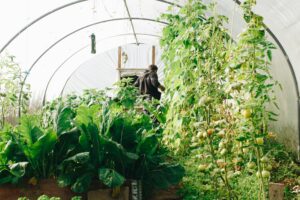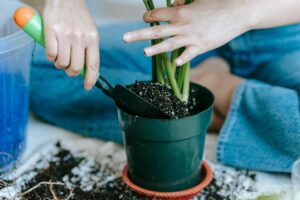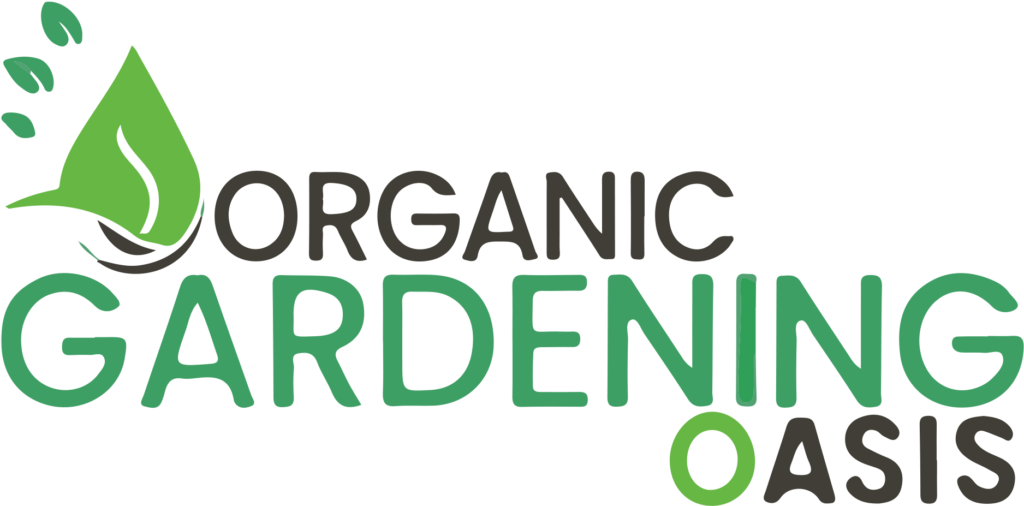Organic Flower Gardening: Tips and Tricks
Organic flower gardening is one of the methods through which unique and attractive flowers are grown by observing nature’s requirements. For instance, you opt for growing flowers organically meaning you do not use any chemicals and or use natural methods only.

Allow me, therefore to give you easy-to-follow methodologies, techniques, and strategies that will enable you to succeed. You are going to discover how to select flowers that match, how to get your garden ready and how to maintain it with no using chemicals at all.
Growing Flowers Organically: A Comprehensive Guide to Flower Gardening
It is a joyous and fulfilling hobby that involves growing flowers contributes to making the environment more attractive and recognises the bond of people with plants. Organic flower growing is also beneficial to make your garden healthy in a natural manner that is beneficial to your health as well. Now, we would like to provide some tips for the proper development of the organic flower garden.
Choosing the Right Flowers
Every gardener should be wise enough to select the right varieties of flowers for his own region when planting flowers in his garden. Native plants are preferred because they can easily grow in the current climatic conditions and obtain soil type. This implies that they demand lesser attention and are more immune to pestilence. For instance, in the Midwest region of the United States it is common to see coneflowers, black-eyed Susans planted.
Another plug, heirloom varieties are also a good type of seed to use for the organic flower garden. These flowers have assumed high value because of the role they play in maintaining gene pool and a great source of recognization. Planting heirloom flowers can assist in the sustainability of the plant’s genetic variety that is important in creation of strong species.
Preparing the Soil
Any garden needs strength and the strength is provided by the soil. It would be best if you first found out the pH of your soil as well as the nutrients it contains. There are various home soil testing kits and anyone can perform this test without any difficulty. This step will help you establish the changes that your soil may require.
Amendments are important principles in organic gardening. Application of compost and other natural manure enhances the texture of the soils and especially since they provide nutrients. Managing kitchen wastes and yard residues such as leaves and grass are an environmentally prudent practice of building soil fertility thus, a favourable platform for the flowers.
Planting Techniques
Now concerning seed starting or transplanting, there are a number of factors to consider depending on the flowers that you are growing and the climate. This way, the window with seeds or seedlings makes it possible to get a head start while the transplanting of young plants in the garden can be easier for new growers.

There are various practices in OFG and one of them is companion planting. Some plants by their reaction to the environment do not encourage pest attack or draw useful insects to the garden. For instance, surrounding roses by marigolds will repel aphids and also, lavender will attract bees.
Organic Pest Control
Implementing pest control can be done naturally without necessarily using chemicals. Attract natural enemies like ladybugs which eats the aphids through planting of dill or fennel. They are allies of the gardener when it comes to managing pests within the garden organically.
You can also create homemade remedies to keep pests at bay. A mixture of water and a few drops of dish soap can help control soft-bodied insects like aphids. Companion planting once again plays a crucial role here, as some plants naturally repel certain pests.
Watering and Mulching
Proper watering is essential for the health of your organic flower garden. Whenever possible, use rainwater to water your plants, as it is free of chemicals commonly found in tap water. Water your garden early in the morning or late in the evening to reduce evaporation.

Mulching helps retain moisture in the soil, suppresses weeds, and adds nutrients as it decomposes. Organic mulches like straw, wood chips, or shredded leaves are ideal for flower gardening.
Maintaining Garden Health
Regular maintenance is necessary to keep your garden flourishing. Pruning and deadheading your flowers encourages new growth and prolongs blooming periods. Remove spent blooms and trim back overgrown plants to maintain a tidy garden.
Rotating crops is another important practice in organic flower gardening. By changing the location of your flower beds each season, you can prevent the buildup of soil-borne diseases and pests.
Seasonal Care
Different seasons require different approaches to organic flower gardening. In spring, prepare your garden by clearing debris and starting early planting. During summer, focus on watering efficiently and protecting your flowers from heat and drought. In fall and winter, take steps to winterise your garden and plan for the next growing season.
Benefits of Organic Flower Gardening
The environmental benefits of organic flower gardening are significant. By avoiding synthetic chemicals, you protect the soil, water, and surrounding wildlife. Additionally, there’s a deep sense of personal satisfaction in growing flowers organically, knowing that you are contributing to a healthier planet and enjoying the natural beauty you’ve cultivated.
Conclusion
Organic flower gardening is a fulfilling endeavour that offers countless rewards. Whether you’re a seasoned gardener or just starting, the techniques and tips shared here will help you grow a vibrant and healthy flower garden. Embrace the joy of growing flowers organically, and watch your garden bloom in harmony with nature.
